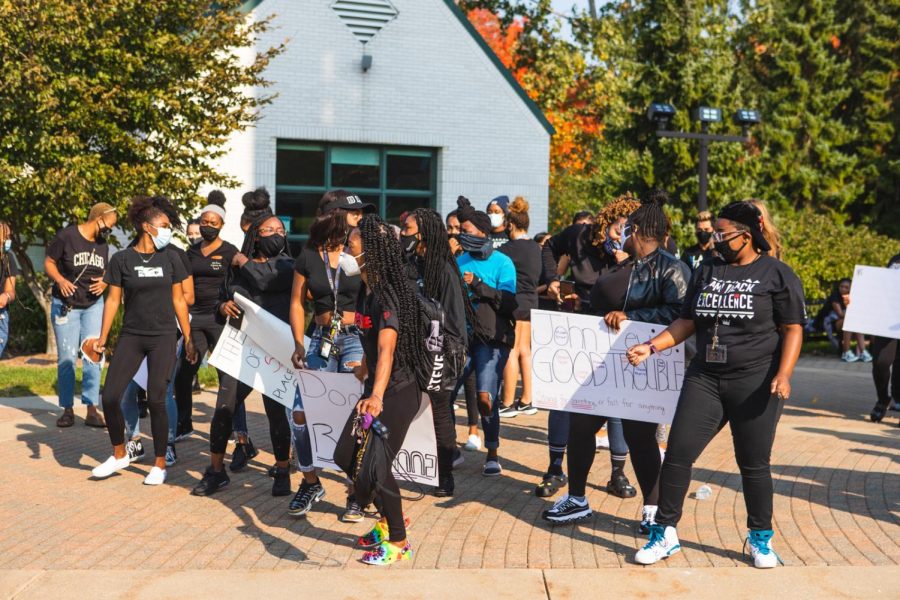Anti-DEI messaging puts GV diversity, equity, inclusion efforts under spotlight
Aug 29, 2022
In recent years, accusations of universities being overly biased toward liberal ideas have grown sharply within the political sphere, including in Michigan.
Candidates and activists, like former Michigan candidate for governor Kevin Rinke, have said the idea that universities have become breeding grounds for what they characterize as a “woke” indoctrination of young students.
Rinke, who recently finished second in Michigan’s Republican primary for governor, could be an example of how this idea is becoming more widespread. In an op-ed for the Morning Sun, Rinke suggested that the blame for this supposed indoctrination in academia lies within programs of diversity, equity and inclusion (DEI).
“The way they force this agenda into our universities is through something called Diversity, Equity, and Inclusion (DEI),” Rinke wrote.
Rinke echoed claims that these programs’ goals are not to increase tolerance of minorities and disadvantaged groups within college campuses, but rather to create a political homogeneity and disrupt genuine academic discussions.
The situation has put institutions like Grand Valley State University at the forefront of a national discussion. Housing its own Division of Equity and Inclusion, GVSU has long been involved in efforts to expand inclusive policies across its campuses.
With the conversation creating increased division among ideologies, director of the Division’s Office for Title IX and Institutional Equity Kevin Carmody, said he believes that there is more to the issue than a simple black and white, liberal versus conservative dichotomy.
“Title IX and gender-based violence prevention has largely been bipartisan until very recently,” Carmody said. “There is rhetoric about ultimately trying to challenge anything that’s being perceived as more liberal. I think right now, we’re being perceived as more liberal, even if that’s not been the case through our history.”
Beyond the partisan arguments against DEI, those who agree with Rinke also suggest that the funds going towards these programs are to blame for the massive hike in tuition fees of colleges and universities in recent decades.
“One of the main problems is the effort to force a ‘woke’ agenda on our college campuses and force parents and students to foot the bill,” Rinke wrote.
Carmody believes that the situation is more nuanced. While he does agree that administrative bloat can increase cost of tuition, he believes that the issue stems from a history of states cutting aid to public universities.
“I think it’s a stronger case that we look at both blue and red states that have decreased state aid into public institutions of higher education across the board,” Carmody said. “In the ’80s, Michigan paid, 75% of the costs associated with higher education. Now, they pay closer to 20%.”
With a perspective more removed from internal university affairs, Peter Mayoros, a Christian missionary working at GVSU, has also found the situation to be more nuanced than figures such as Rinke might suggest.
Having spent time at both the University of Michigan and GVSU, Mayoros is familiar with political and ideological discussions on college campuses. He has found, however, that most people he’s talked with have been more or less open to other ideas and understanding of differences.
“In my experience, I’ve definitely seen that maybe places can tend to be more liberal in academic institutions,” Mayoros said. “Overall, those claims can be unjust and often portrayed in a negative way that I don’t think is fair to universities. I don’t think they’re trying to brainwash people or something like that.”
Still, as Rinke accrued nearly 22% of the overall vote in the GOP’s gubernatorial primary, anti-DEI sentiment has visibly gained more traction within the minds of voters and political leaders.






















